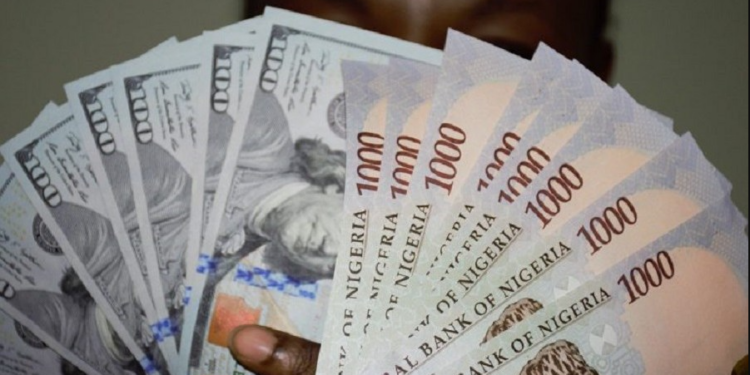The dollar index remained near its weekly high, while the Nigerian naira fell below a key support line. The local currency dropped below the N1,600/$ support level in the black market.
Market fundamentals indicate renewed demand pressure and an expanding supply gap, leading to another round of naira depreciation.
The naira’s value fell from N1,625 per dollar last weekend to N1,635/$ yesterday.
The local currency is under severe pressure this month, struggling to maintain the critical N1,500 support level, according to market indicators, despite slight improvements in some macroeconomic conditions in the Nigerian foreign exchange market.
Fundamentals suggest that if the local currency cannot maintain its current levels, it may decline towards N1,800/$. Even ardent supporters of free market economics may now doubt that the naira will strengthen to its March highs this quarter.
The Central Bank of Nigeria plans to issue treasury bills valued at N2.2 trillion in the fourth quarter of 2024. This substantial issuance, a direct response to the nation’s current economic difficulties, aims to stabilize the naira while managing liquidity in the financial market.
In response to soaring inflation, the Nigerian apex bank has adopted a tight monetary policy, raising interest rates on treasury notes to provide more incentives in the Nigerian capital market. The interest rates on 364-day bills increased from approximately 15–18% at the end of 2023 to 21.49% in the first half of 2024.
U.S. Dollar Index Hits Two-Week High
The dollar strengthened to its highest level since August 20, driven by rising long-term Treasury rates and inflation data indicating a smaller rate cut. The dollar index consolidated around 101.67 index points after reaching a peak of 101.79, a level not seen since August 20.
For the first time since July 2023, it fell as low as 100.51 index points last week following Fed Chair Powell’s statement that the easing campaign would begin at the next policy meeting. Data on U.S. gross domestic product also suggested that the economy is strong enough to allow the Federal Reserve to be less aggressive in loosening policy.
Currently, traders fully price in a quarter-point reduction in the Fed rate, with a 33% chance of a 50-basis point cut this month. Expectations for a larger decline were 36% a week ago.
U.S. payroll data, due on Friday, will be significant as Federal Reserve Chair Jerome Powell has shifted from combating inflation to preparing to protect against job losses. Analysts believe the employment data will influence the extent of the expected rate cut by the Federal Reserve. Markets have already been pricing in a 25-basis point cut for weeks.

